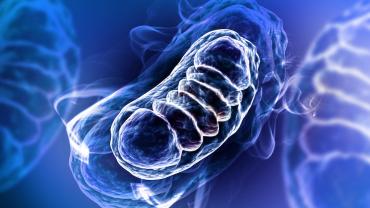
The mitochondrion, also known as the "powerhouse of the cell," plays a pivotal role in energy production by generating adenosine triphosphate (ATP). This organelle is also crucial in various metabolic pathways, including lipid metabolism, gluconeogenesis, calcium flux regulation, and the management of cellular stress responses, such as autophagy and apoptosis. To meet the body's energy demands, cells undergo mitochondrial biogenesis, a process responsible for creating new mitochondria.
Mitochondrial biogenesis occurs prominently in tissues with high ATP demands, like the brain, heart, and skeletal muscles. Maintaining a balance between mitochondrial biogenesis and mitophagy (the removal of mitochondria through autophagy) is of significant clinical relevance for human health. Consequently, dysfunctional mitochondrial biogenesis has been associated with several human conditions, including cardiovascular disease, neurodegenerative disorders, and type 2 diabetes. Mitochondrial dysfunction is also associated with fatigue and may be clinically relevant in individuals with chronic fatigue syndrome or post-viral fatigue.
Additionally, reactive oxygen species (ROS) are generated naturally during ATP production in the mitochondria. However, excess ROS may impair optimal mitochondrial biogenesis. As a result, polyphenols that demonstrate antioxidant properties, such as resveratrol and curcumin, may have dual benefits on mitochondrial health: promoting healthy antioxidative status and the production of new mitochondria.
Resveratrol, a member of the stilbene family found in plant foods like grapes, peanuts, cocoa, jackfruit, blueberries, and cranberries, has been the subject of numerous preclinical studies. Its potential clinical benefits include demonstrated antioxidant, anti-inflammatory, and antimicrobial properties and supporting cardiovascular health, healthy glucose metabolism, and healthy aging.
Through in vitro and in vivo experimental models, resveratrol has been shown to promote mitochondrial biogenesis in various cell types, including those found in the liver, cardiovascular system, brain/neurons, adipose tissues, and muscles. Resveratrol may promote mitochondrial function during metabolic dysfunction, such as unhealthy glucose metabolism. Furthermore, resveratrol may support mitochondrial mass and DNA content, potentially supporting the constituents of the electron transport chain and factors related to mitochondrial biogenesis. It may also support SIRT1-dependent nitric oxide production, which may help promote mitochondrial biogenesis.
Curcumin is a bright, yellow-colored polyphenolic compound derived from the rhizomes of turmeric (Curcuma longa L.). Curcumin has been shown in vitro and in vivo to promote mitochondrial function and biogenesis, primarily through the induction of the PGC-1α-related signaling pathway. Similar to resveratrol, curcumin has demonstrated antioxidant, anti-inflammatory, and antimicrobial properties and may also support liver, heart, and immune health.
Resveratrol and curcumin may promote healthy mitochondrial biogenesis. Supporting mitochondrial biogenesis may be clinically relevant to the general population, but especially for individuals with high energy demands or aging individuals.
By Danielle Moyer, MS, CNS, LDN